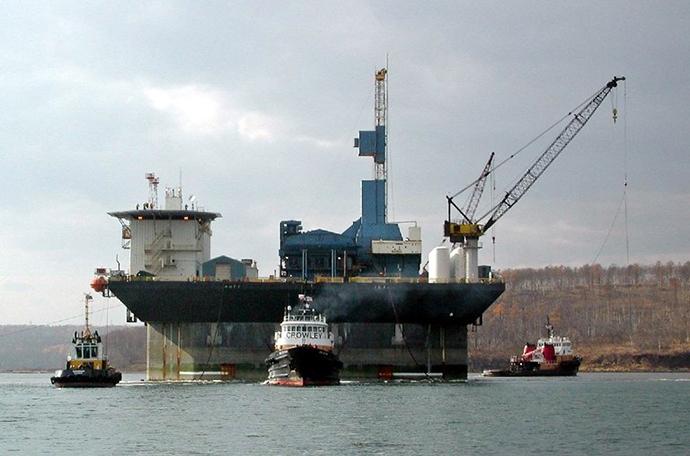
FROM RUSSIA WITH LOVE

Moscow is seeking to prevent its European customers re-exporting Russian gas to Ukraine, threatening to choke off a crucial lifeline for Kiev and deepen the energy crunch it faces this winter.
The threats come as EU ambassadors finally approved new sanctions against Russia on Monday night that are expected to target the country's largest state-owned energy companies.
But following concerns raised by new Finnish prime minister Alex Stubb, the sanctions will not become official for a "few days" giving Brussels time to assess whether last week's ceasefire can take hold.
"This will leave time for an assessment of the implementation of the ceasefire agreement and the peace plan," Herman Van Rompuy, president of the European Council, said in a statement. "Depending on the situation on the ground, the EU stands ready to review the agreed sanctions in whole or in part."
The EU sanctions are against three state-controlled Russian energy companies – Rosneft , Gazpromneft and Transneft – that will sharply limit their access to western financial markets.
Russia severed gas exports to Ukraine in June in a dispute over prices and the country faces severe energy shortages this winter if the EU cannot broker a supply deal between Moscow and Kiev . Talks are due to resume this month.
In an effort to offset lost volumes from Russia, Ukraine has sought to secure more gas from the EU, principally through "reverse flows" – re-exports of Russian gas via countries such as Poland, Hungary and Slovakia.
But Gazprom , Russia's state gas company, has long complained about the re-exports, with Alexei Miller, its chief executive, denouncing them as a "semi-fraudulent mechanism".
Senior officials in the European Commission and in eastern European governments say Russia has been raising the prospect of reducing export volumes so their customers have no gas left over for reverse flows to Ukraine. "They say this pretty openly," said one central European ambassador.
Although Kiev was the immediate target, another eastern European official said such reductions could also raise the risk of supply disruptions and price spikes in the EU.
However, Sergei Kupriyanov, a Gazprom spokesman, denied any threat to European export volumes. "This is the first time I have heard of that," he said.
The amount of gas Ukraine receives via reverse flows is modest. Slovakia can export some 17.6m cubic metres a day, Hungary 16 mcm/d and Poland 4 mcm/d. However, Ukraine needs to import about half of its consumption of about 50bn cubic metres annually and analysts reckon it would struggle to weather the winter without imports of 5bcm to 10bcm. Ukraine's energy network is highly inefficient and its problems are being compounded by falling coal production.
Stung by gas supply cuts from Russia in 2006 and 2009, the EU has this year prioritised the building of storage. On Sunday, the storage facilities were 89 per cent full and countries say they are far better prepared than in 2009.
Karel De Gucht, the EU's trade commissioner, said Russian officials were seeking a quick price deal with Ukraine, realising that another serious supply cut to Europe could force a generational shift away from Russia. "Russia also has an interest that they are seen as a reliable supplier," he said.
Russia has also threatened to retaliate against more EU sanctions. In an interview with Vedomosti, the Russian sister paper of the Financial Times, on Monday Dmitry Medvedev, Russian prime minister, warned that Moscow could close its airspace to European airlines flying across the territory to Asia in response to new EU sanctions.
'If there are new sanctions, we'll need to respond to them. If there are sanctions related to the energy sector or further restrictions on the financial sector, we will have to respond asymmetrically," Mr Medvedev said.
Despite reports of shooting at a Ukrainian army roadside checkpoint on the outskirts of Mariupol on Monday the ceasefire between government forces and Russian-backed rebels, agreed on Friday, held for third day.
While visiting Mariupol Monday, Mr Poroshenko held a telephone call with Vladimir Putin, his Russian counterpart, in which both discussed implementation of the ceasefire and monitoring by the Organisation for Security and Co-operation in Europe. Both presidents also agreed to continue dialogue, according to a statement on Mr Poroshenko's website.
ft.com





